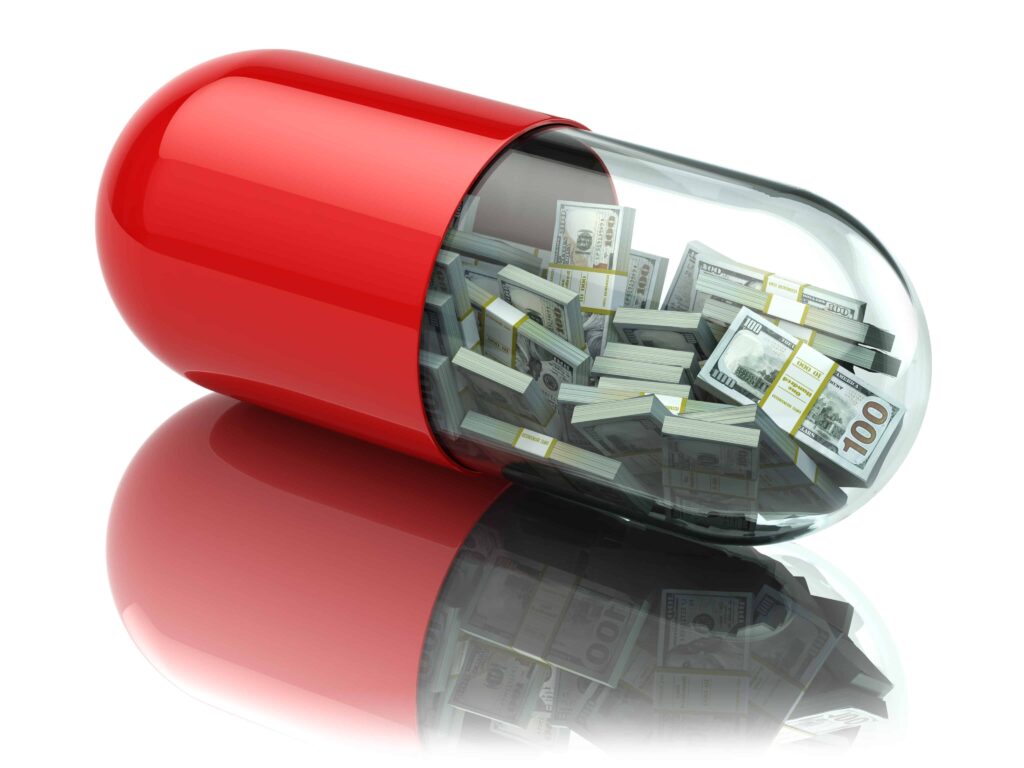
In a recent campaign stop in California, President Joe Biden said that people in other countries are paying 40-60% less than what Americans are paying for prescription drugs. A fact-checker recently approved his claim, affirming that Americans are indeed paying double for prescription drugs compared to prices in other countries.
“If I put you on Air Force One with me, and you have a prescription—no matter what it’s for, minor or major—and I flew you to Toronto or flew to London or flew you to Brazil or flew you anywhere in the world, I can get you that prescription filled for somewhere between 40 to 60% less than it costs here,” Biden said at a Feb. 22 campaign reception in Los Altos, California, where he was joined by Vice President Kamala Harris.
WLRN, which can be found on 91.3 FM in Florida, partnered with PolitiFact to fact-check politicians and the claims that they make while on the campaign trail. Biden’s comments last month were ranked “mostly true” by fact-checkers, reports WUWF, and NPR member station.
Biden then cited provisions in the 2022 Inflation Reduction Act to lower prescription drug prices, including capping insulin at $35 per month for Medicare enrollees. Lawmakers also put a limit on older Americans’ out-of-pocket prescription costs to $2,000 per year starting in 2025.
The law also authorizes Medicare to negotiate prices directly with drug makers for 10 prescription drugs, and the list is expected to grow.
There’s a growing body of evidence to suggest that overall, U.S. prescription drug prices are significantly higher, sometimes two to four times, compared with prices in other industrialized nations. Generic drugs, however, are an anomaly and are typically cheaper in the U.S. compared with other countries.
A recent study by Rand found that across all drugs, U.S. prices were 2.78 times higher than prices in 33 other countries, based on 2022 data. The divide was largest for brand-name drugs, with U.S. prices averaging 4.22 times higher than those in the other nations. After adjusting for manufacturer-funded rebates, U.S. prices for brand-name drugs remained more than three times higher than prices in other countries.
“The analysis used manufacturer gross prices for drugs because net prices—the amounts ultimately retained by manufacturers after negotiated rebates and other discounts are applied—are not systematically available,” a press release about the report said.
A series of other studies show that in the U.S., people are paying more than any other peer countries for brand-name drugs, and it’s not offset enough by generic drug prices.
Drug patents and exclusivity are other factors keeping U.S. drug prices higher than in other countries.
Other Politicians Agree Prescription Drug Costs Are Too High
Last February, Sen. Bernie Sanders (I-Vermont) issued a report slamming the U.S. prices of drugs and executive pay of three major drug manufacturers—Johnson & Johnson (J&J), Merck, and Bristol Myers Squibb—just before a hearing.
The CEOs of all three drug manufacturers had to appear before a hearing to be grilled by Sanders, prepared by staff associated with the U.S. Senate Committee on Health, Education, Labor, and Pensions (HELP Committee). The New York Times reports that they testified on their behalf Feb. 8, telling their side of the story.
Americans pay the most for life-saving drugs compared to other countries, the senator’s report summarized—by far. In some cases, Americans are paying nearly 10 times the price as what Germans pay. Sanders’ detailed report outlines how the three companies are spending more on executive pay and stock buybacks than drug research and development (R&D).
“The United States pays, by far, the highest prices in the world for prescription drugs,” the report reads, written by staff and headed by Sanders as Chair. “At a time when one out of four Americans cannot afford the medicine their doctors prescribe, ten large pharmaceutical companies made over $112 billion in profits in 2022 while paying their chief executives exorbitant compensation packages and spending billions of dollars on stock buybacks and dividends to make their wealthy stockholders even richer.”
Sens. Maggie Hassan (D-NH) and Bob Menendez (D-N.J.) voted last July to advance a bipartisan bill she personally helped develop to reduce the rocketing cost of prescription drugs and the way pharmacy managers benefit from rising drug prices.
The Modernizing and Ensuring PBM Accountability (MEPA) Act, which passed the Finance Committee July 26 on a bipartisan basis, reduces the cost incentive for pharmacy benefit managers (PBMs) to prioritize more expensive drugs because they receive higher payouts for higher priced drugs.
The MEPA Act would scale back incentives to jack up prescription drug prices at pharmacies. The legislation shows that lawmakers understand change is needed regarding sky-high drug prices.
Read full article on High Times

